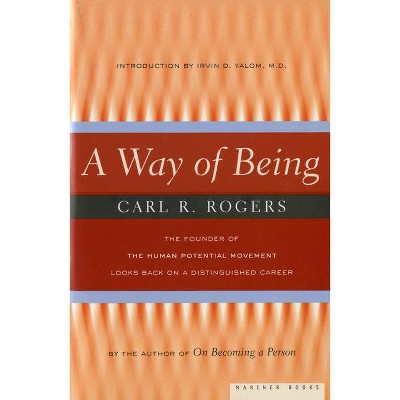Sponsored

Blue Collar Bayou - by Jacques M Henry & Carl L Bankston (Hardcover)
In Stock
Sponsored
About this item
Highlights
- Although the French language and the traditional rural way of life are disappearing among Louisiana Cajuns, identification with Cajun ethnicity is flourishing.
- About the Author: JACQUES M. HENRY is Associate Professor of Sociology at the University of Louisiana, Lafayette.
- 264 Pages
- Social Science, Sociology
Description
About the Book
Although the French language and the traditional rural way of life are disappearing among Louisiana Cajuns, identification with Cajun ethnicity is flourishing. Henry and Bankston draw on historical documents, ethnographic observations and interviews, and statistical sources to investigate and explain this phenomenon. They argue that while Cajun ethnicity developed from and consisted of the French-speaking, rural poor of the region, it has been transformed, during the 20th century, into a regional class with common interests and outlooks. A substantial minority of Cajuns have risen out of the blue collar niche and into the middle class, creating more complicated problems of adjustment, role redefinition, and the changing nature of relationships with friends and family who remain part of the working class. The authors detail and describe the way the working class Cajun majority and the white collar Cajun minority draw on images and ideas from a reconstructed past to make sense of their present conditions and changes in their community. This comprehensive structural analysis of Cajun ethnicity suggests a new emphasis on structural conditions in understanding ethnic phenomena and introduces the concept of an economy of ethnicity.
In analyzing and exploring the creation and maintenance of Cajun ethnicity, Henry and Bankston also point toward a general theory of contemporary ethnic groups. Why, for instance, have more and more people claimed to be of Native American ancestry? How did the population of people calling themselves Irish soar over the course of a very brief period of time? Arguing that as the cultural basis of difference subsides, ethnic claims increase, and that such claims are based on a number of factors including socioeconomic and regional concerns, the authors contend that the same factors at play in the maintenance of the Cajun ethnicity are also at play in other ethnic communities and subcultures within the United States. They conclude that in claiming an ethnic identity, group members rework ideas of history and ancestry in order to apply these ideas to modern life.
Book Synopsis
Although the French language and the traditional rural way of life are disappearing among Louisiana Cajuns, identification with Cajun ethnicity is flourishing. Henry and Bankston draw on historical documents, ethnographic observations and interviews, and statistical sources to investigate and explain this phenomenon. They argue that while Cajun ethnicity developed from and consisted of the French-speaking, rural poor of the region, it has been transformed, during the 20th century, into a regional class with common interests and outlooks. A substantial minority of Cajuns have risen out of the blue collar niche and into the middle class, creating more complicated problems of adjustment, role redefinition, and the changing nature of relationships with friends and family who remain part of the working class. The authors detail and describe the way the working class Cajun majority and the white collar Cajun minority draw on images and ideas from a reconstructed past to make sense of their present conditions and changes in their community. This comprehensive structural analysis of Cajun ethnicity suggests a new emphasis on structural conditions in understanding ethnic phenomena and introduces the concept of an economy of ethnicity.
In analyzing and exploring the creation and maintenance of Cajun ethnicity, Henry and Bankston also point toward a general theory of contemporary ethnic groups. Why, for instance, have more and more people claimed to be of Native American ancestry? How did the population of people calling themselves Irish soar over the course of a very brief period of time? Arguing that as the cultural basis of difference subsides, ethnic claims increase, and that such claims are based on a number of factors including socioeconomic and regional concerns, the authors contend that the same factors at play in the maintenance of the Cajun ethnicity are also at play in other ethnic communities and subcultures within the United States. They conclude that in claiming an ethnic identity, group members rework ideas of history and ancestry in order to apply these ideas to modern life.Review Quotes
"For all the insights this study gives us into (white)ethnicity in a postindustrial society...[t]his is an excellent case study, combining economic and cultural history with qualitative and quanitative analyses of the contemporary scene. The authors' knowledge of Cajun society and culture is deep and they document it in loving detail"-Contemporary Sociology
? Blue Collar Bayou is a solid piece of social history of a little known American ethnic group and it should be a useful addition to the collections of ethnic studies specialists.?-American Journal of Sociology
? Blue Collar Bayou is replete with novel insights into modern Cajun ethnicity and deserves to be considered, without reservation, as a landmark in the field of Cajun studies.?-Louisiana History
?For all the insights this study gives us into (white)ethnicity in a postindustrial society...[t]his is an excellent case study, combining economic and cultural history with qualitative and quanitative analyses of the contemporary scene. The authors' knowledge of Cajun society and culture is deep and they document it in loving detail?-Contemporary Sociology
"Blue Collar Bayou is a solid piece of social history of a little known American ethnic group and it should be a useful addition to the collections of ethnic studies specialists."-American Journal of Sociology
"Blue Collar Bayou is replete with novel insights into modern Cajun ethnicity and deserves to be considered, without reservation, as a landmark in the field of Cajun studies."-Louisiana History
About the Author
JACQUES M. HENRY is Associate Professor of Sociology at the University of Louisiana, Lafayette.
CARL L. BANKSTON III is Professor of Sociology at Tulane University.Shipping details
Return details
Trending Non-Fiction

















